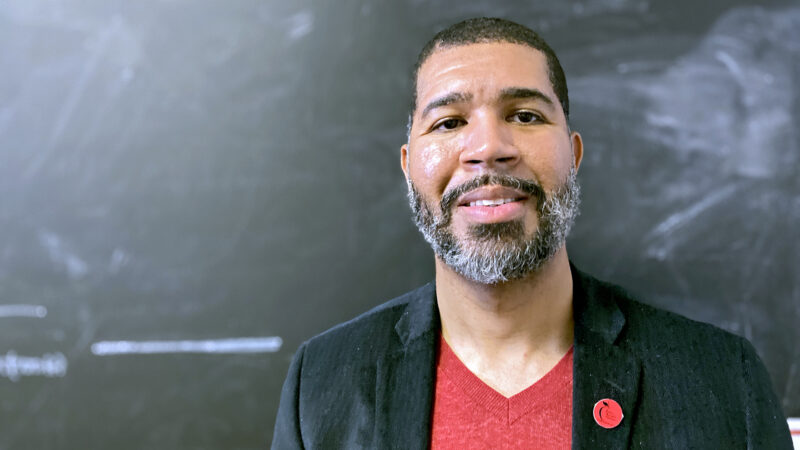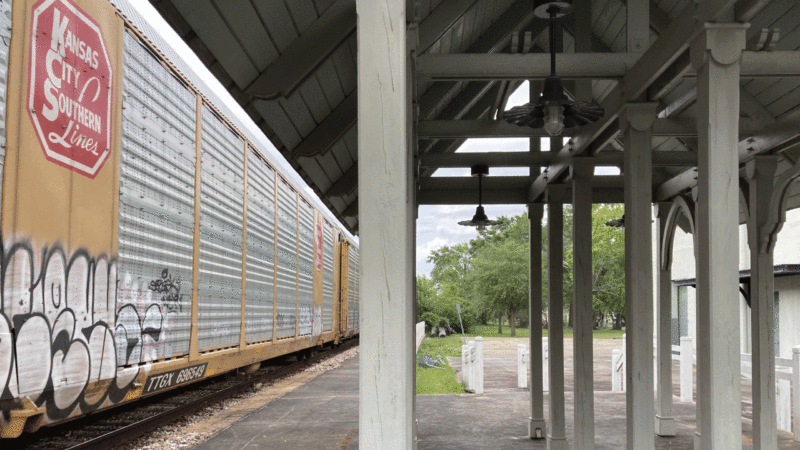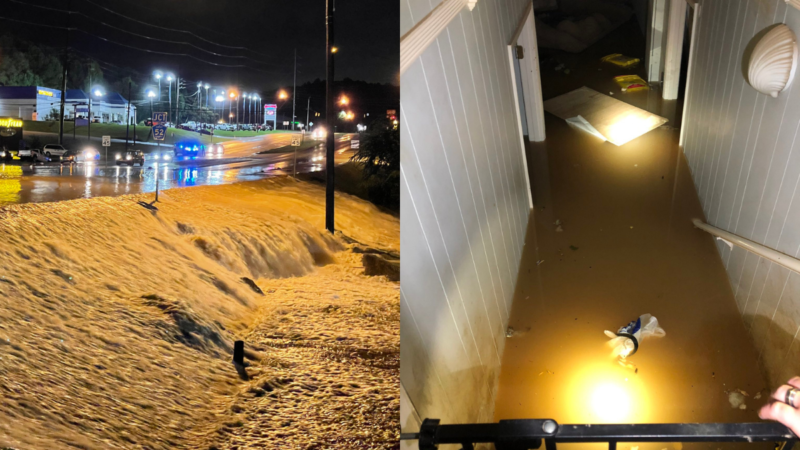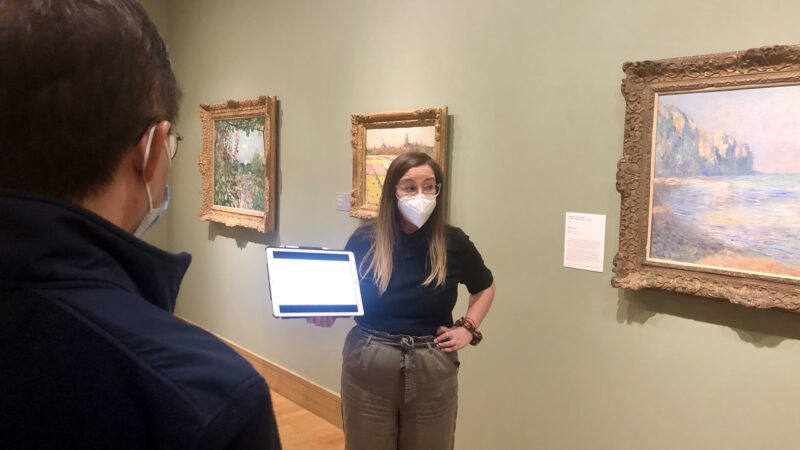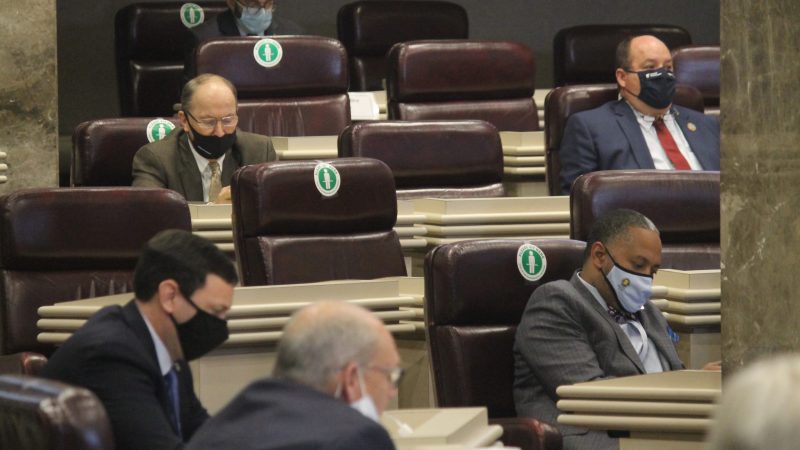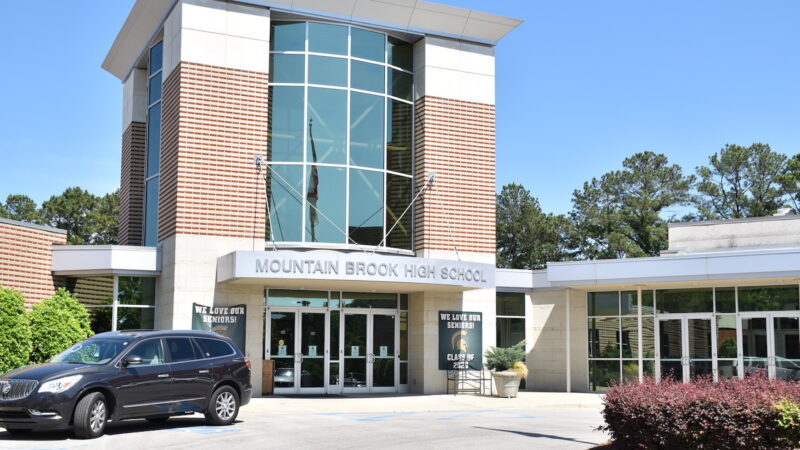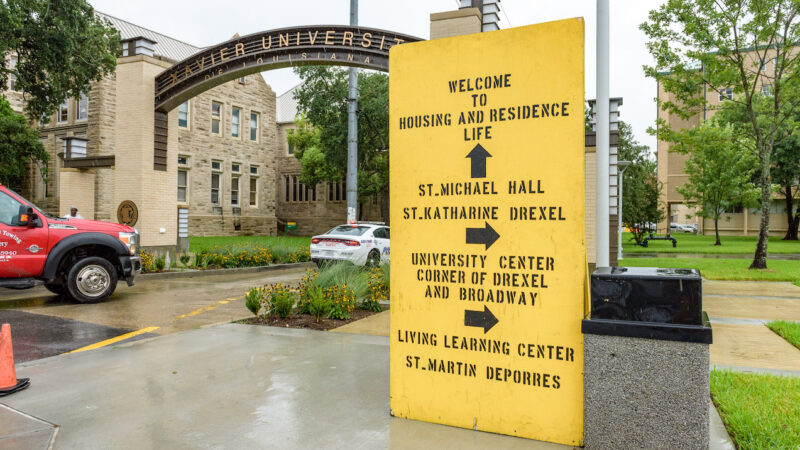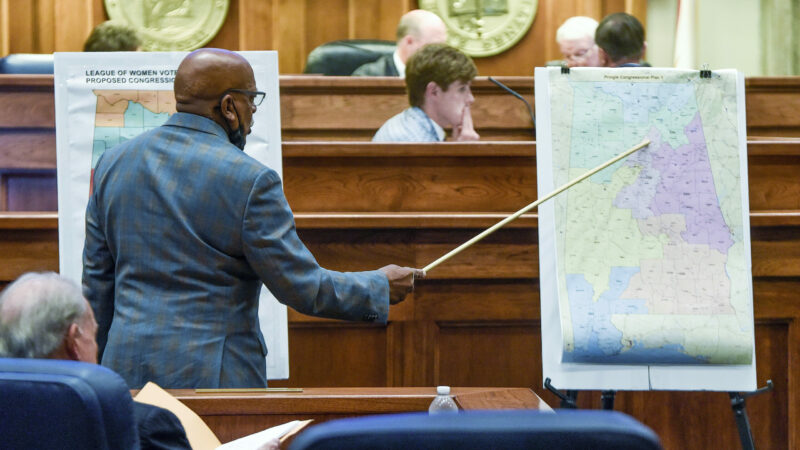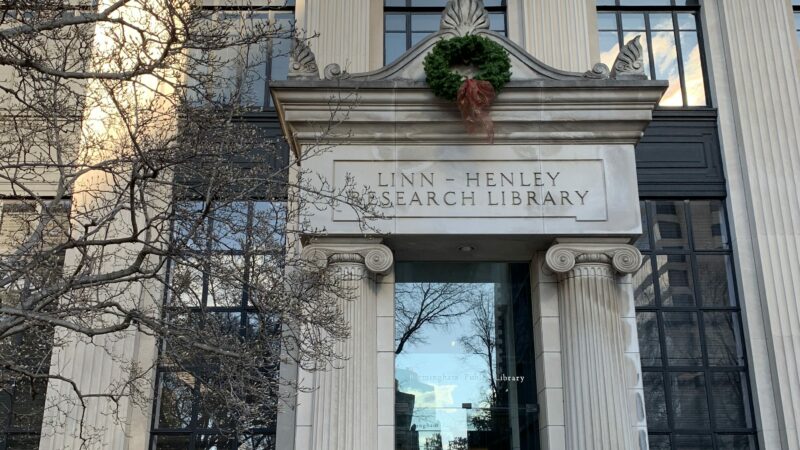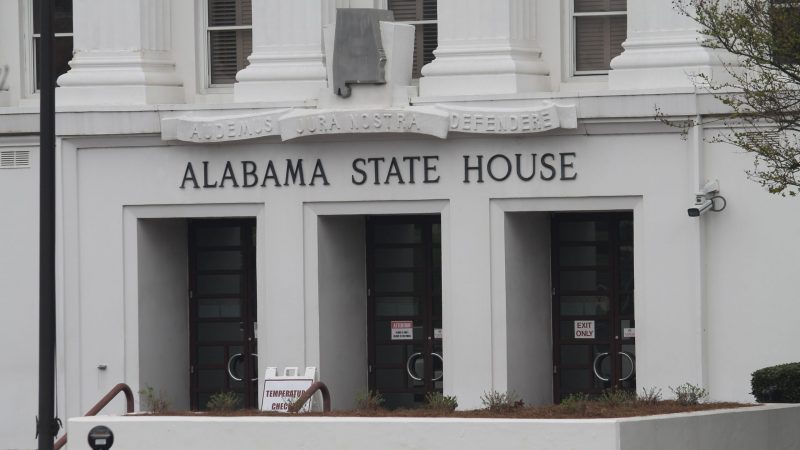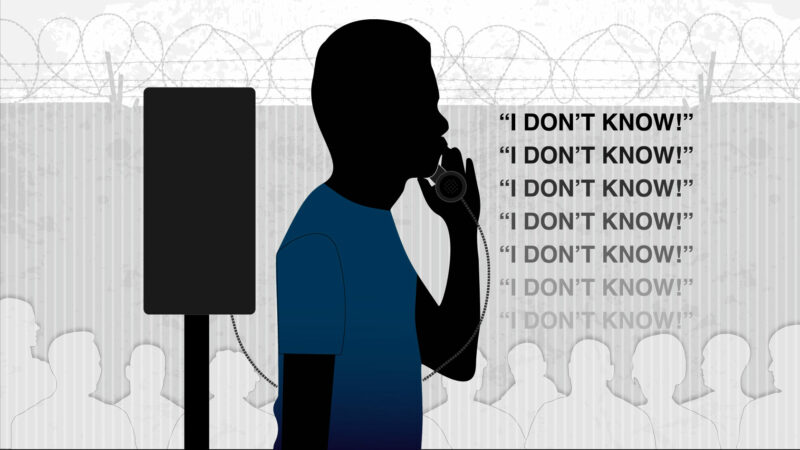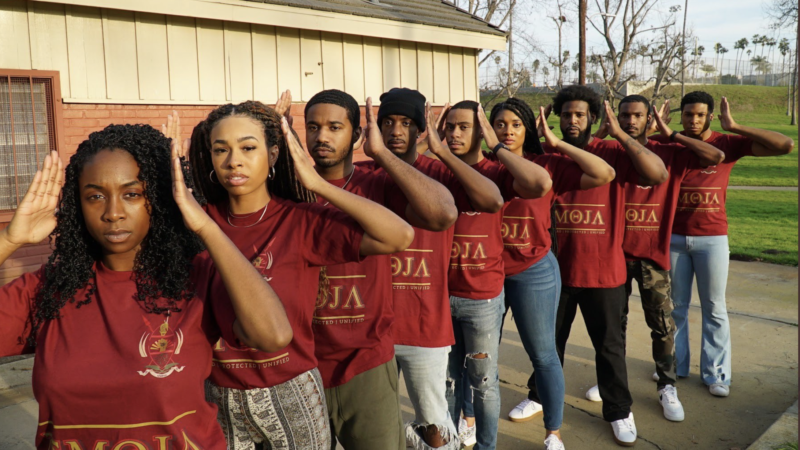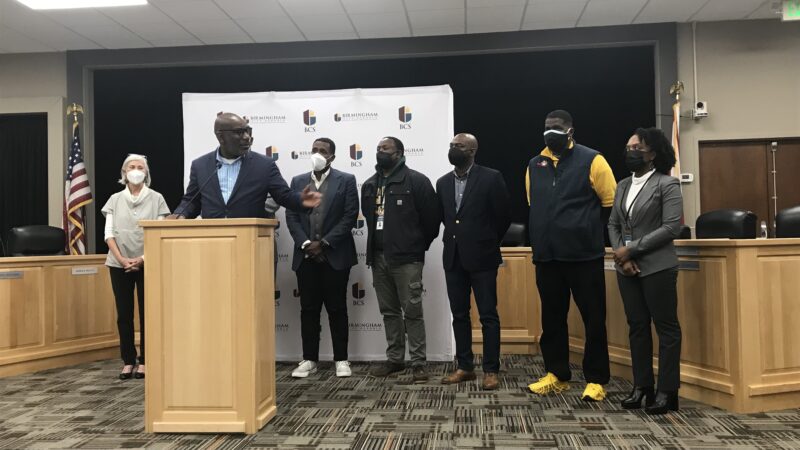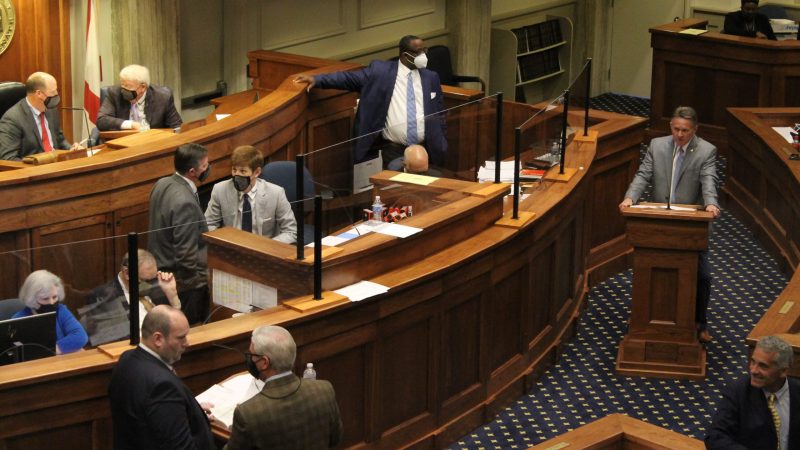Sections
Mississippi’s plan to stop Alabama from stealing its teachers? Pay them thousands more
As Mississippi lawmakers plot how to keep more teachers in the state, educators warn the state’s bill targeting critical race theory could drive them away.
WBHM to bring Birmingham’s voices to national NPR audiences through ‘1A Remaking America’
A two-year public media partnership between WBHM and 1A will explore local threats to America’s democracy.
Amtrak’s proposed Mobile-New Orleans line is ‘a bad idea’ for Alabama, officials say
Mississippi wants to move full steam ahead with plans to restore the passenger rail, but Alabama worries the line will disrupt the freight rail.
2022 PMJA Awards — Spot News
Newscast spot aired July 29, 2021 Intro: The rise in COVID cases is on the minds of many as Birmingham City Schools students return to the classroom Monday. But on […]
Applications close soon for flood damage relief in central Alabama
Jefferson and Shelby counties experienced flooding in October 2021. The federal applications for flooding relief close soon.
PMJA Awards — Breaking News, Part 2
Newscasts from March 26, 2021, the morning after a tornado outbreak in Alabama
PMJA Awards — Breaking News, Part 1
Newscasts from March 25, 2021 during a tornado outbreak in Alabama
How a Birmingham art educator makes art feel accessible and inclusive
Angie May wants art to reach everyone who visits the Birmingham Museum of Art. As the associate director in learning and engagement, she heads inclusive and innovative initiatives to open art history to younger generations.
Alabama Republicans pass bill to hike penalties for removing Confederate monuments
Republicans also advanced a bill that would require jail time for those who participate in a riot, plus another banning certain therapies for transgender youth.
Jewish family faces death threats after complaining about Nazi salute performed in class
A teacher at Mountain Brook High School allegedly led students in a salute that mimics how Nazis raised their arms in World War II. A Jewish student in the class complained and his family says they’re now receiving death and arson threats.
Travel nurse salaries are rising due to demand. Some hospitals say it’s price gouging
In the Gulf South, Mississippi has spent around $90 million on temporary medical staff. Louisiana has spent nearly $250 million.
2022 Murrow Award — Overall Excellence
WBHM’s entry for overall excellence includes the following: 00:00 – “Birmingham Teachers Welcome Students Back to School Amid COVID Surge” (aired 08/02/21) 01:53 – Excerpt from audio postcard – “Alabama’s […]
2022 Murrow Awards — News Series, Part Two
Second part of the news series “Gun Violence in the Magic City” This piece is titled “Birmingham Residents Offer Solutions to Gun Violence but Some Victims Feel Hopeless” and it […]
2022 Murrow Awards — Sports Reporting
Story titled “After a blowout pilot season, high school girls flag football could be an official sport in Alabama” which originally aired on Nov. 30, 2021
After bomb threats, Southern HBCU leaders discuss how to move forward: ‘We can’t cave’
Historically Black colleges and universities in multiple states, including Alabama, have received bomb threats this month.
EXPLAINER: How Alabama congressional map got to high court
A divided Supreme Court is allowing Alabama to use re-drawn congressional districts for the 2022 elections that a lower court found had improperly diluted the votes of Black residents.
New Birmingham Public Library board will decide the future of library closures 
The Birmingham Public Library Board will swear in new board members Tuesday afternoon, making a majority of the appointees first timers.
2022 Murrow Award — Newscast
WBHM morning newscast from Dec. 8, 2021
Supreme Court lets Alabama use GOP-backed map of the state’s congressional districts
The court's action came on an emergency appeal from Alabama, which challenged a decision by a three-judge federal court panel that included two Trump appointees.
2022 Murrow Award — Breaking News, Part 2
Excerpts from morning newscasts on March 26, 2021, the day after a deadly tornado outbreak in Alabama
2022 Murrow Award — Breaking News, Part 1
Excerpts from WBHM’s afternoon newscasts on March 25, 2021, when a deadly tornados hit Alabama
Gulf South hospitals face ‘worst-case scenario’ as staffing costs skyrocket
Facilities are under strain and federal assistance only goes so far.
School choice and permitless carry bills face rocky road in the Alabama legislature
Legislative committees passed both measures this week, but not before speakers at hearings expressed criticism of the proposals.
Amazon warehouse workers in Alabama vote for second time in union effort
Last year, Alabama workers voted against forming the first unionized Amazon warehouse in the U.S. Then, federal labor officials said Amazon unfairly influenced that election. Now, a re-vote begins.
Seeking asylum in the U.S. is not easy. It’s harder when you speak a rare language
Two men who speak a rare language languished in Louisiana and Mississippi detention centers, they say, because they couldn't interview in their native tongue.
EXPLAINER: COVID vaccines for kids under 5: What’s next?
COVID-19 vaccines for kids under 5 may be available in the U.S. as early as March, but there are several hurdles still to clear.
Jury: No defamation from Roy Moore or woman who accused him
A jury has found that no defamation occurred in dueling lawsuits between former U.S. Senate candidate Roy Moore and the woman who accused him of molesting her when she was 14.
Alabama native’s play explores Black student unity through co-ed fraternity
The play is centered on a group of Black college students at the fictitious McMillian University, a small, mostly-White Christian college in Birmingham.
Birmingham teachers stage sickout due to COVID frustrations
Some Birmingham City Schools employees staged a sickout this week to bring attention to their concerns with how COVID-19 is being dealt with in their schools.
2022 ABBY Awards — Station of the Year
WBHM’s audio entry for station of the year
Congressional map ruling a ‘bombshell’ for Alabama lawmakers
A panel of federal judges ordered lawmakers to redraw congressional maps approved last year by Feb. 11.
Brookside under pressure after report finds police aggressively ticketed motorists
An investigation led by Alabama Media Group columnist John Archibald found the small Jefferson County town of Brookside targeted drivers to rack up fines and fees.

